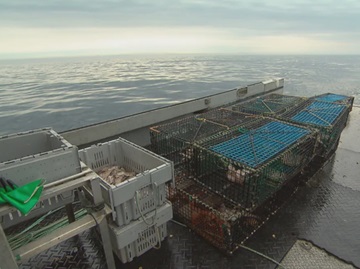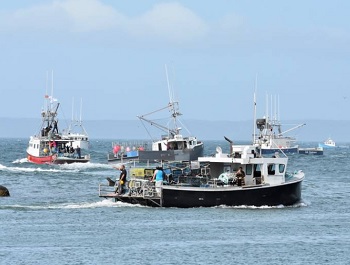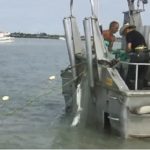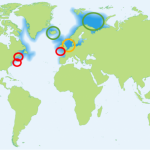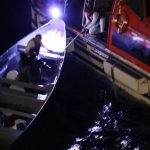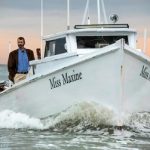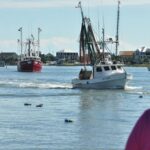Tag Archives: Assembly of Nova Scotia Mi’kmaw Chiefs
Maritime elver fishery closure penalizes legal fishers, committee hears
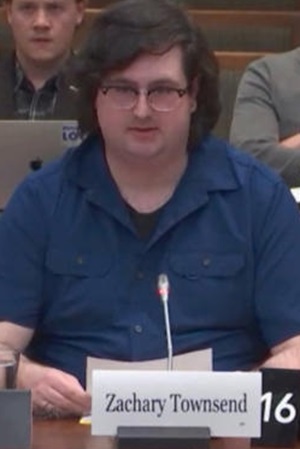 The committee heard from the Canada Border Services Agency, the Canadian Food Inspection Agency, the RCMP, the Canadian Committee for a Sustainable Eel Fishery, and a legal elver fisherman with Shelburne Elver. “I lost my partner to cancer a few months ago,” Zachary Townsend, the elver fisherman, told the committee. “It’s been hard and unbearable at times. But to now be unemployed and facing an uncertain financial future is simply a challenge I didn’t need. “And I don’t share such sad news to vote your pity, but instead to remind you that each of us 1,100 [Maritime elver fishers] has a story and a unique set of circumstances now made worse by the minister.” The elver fishing season was cancelled in Nova Scotia and New Brunswick after Fisheries and Oceans Canada admitted it couldn’t control poaching or the export of baby eels, which sell for thousands of dollars a kilogram. more. >>click to read<< 16:42
The committee heard from the Canada Border Services Agency, the Canadian Food Inspection Agency, the RCMP, the Canadian Committee for a Sustainable Eel Fishery, and a legal elver fisherman with Shelburne Elver. “I lost my partner to cancer a few months ago,” Zachary Townsend, the elver fisherman, told the committee. “It’s been hard and unbearable at times. But to now be unemployed and facing an uncertain financial future is simply a challenge I didn’t need. “And I don’t share such sad news to vote your pity, but instead to remind you that each of us 1,100 [Maritime elver fishers] has a story and a unique set of circumstances now made worse by the minister.” The elver fishing season was cancelled in Nova Scotia and New Brunswick after Fisheries and Oceans Canada admitted it couldn’t control poaching or the export of baby eels, which sell for thousands of dollars a kilogram. more. >>click to read<< 16:42
N.S. First Nations to exercise right to moderate livelihood during upcoming lobster season
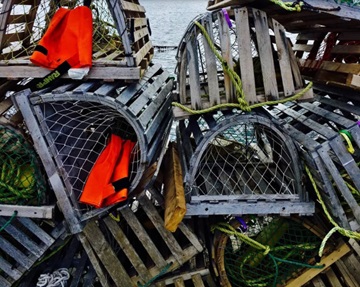 For the third consecutive year, four First Nations in southwestern Nova Scotia will exercise their treaty right to fish for a moderate living when Canada’s most lucrative lobster fishery opens next week. The Department of Fisheries and Oceans announced Monday that it has again issued an interim authorization to Wasoqopa’q (Acadia), Annapolis Valley, Bear River and Glooscap First Nations. DFO insists that moderate livelihood fishing must occur during commercial seasons — a limitation that some Mi’kmaq do not accept. The right to earn a moderate living was recognized — but not defined — by the Supreme Court of Canada more than 20 years ago in the Marshall cases. >>click to read<< 07:53
For the third consecutive year, four First Nations in southwestern Nova Scotia will exercise their treaty right to fish for a moderate living when Canada’s most lucrative lobster fishery opens next week. The Department of Fisheries and Oceans announced Monday that it has again issued an interim authorization to Wasoqopa’q (Acadia), Annapolis Valley, Bear River and Glooscap First Nations. DFO insists that moderate livelihood fishing must occur during commercial seasons — a limitation that some Mi’kmaq do not accept. The right to earn a moderate living was recognized — but not defined — by the Supreme Court of Canada more than 20 years ago in the Marshall cases. >>click to read<< 07:53
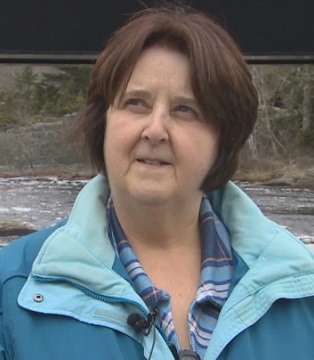
Striking fishery officers stand aside as poaching continues for lucrative baby eels
“Our net should be here, not some illegal fisherman,” says Brenda Golden, a co-owner of Wine Harbour Fisheries. Golden is looking under the Liscomb River bridge where a fine mesh net supported by floats stretches into the black foamy water. Hoping to have the net removed, Golden’s daughter reported it to the local Department of Fisheries and Oceans on Tuesday. Fisheries officials did not provide a response when asked about this incident. Nor to questions about the impact of the ongoing Public Service Alliance of Canada strike on its ability to rein in widespread illegal harvesting. >click to read< 07:15
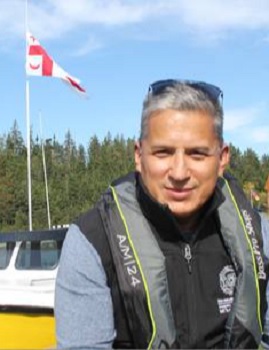
Mi’kmaq drop civil lawsuit, shift legal tactics in moderate livelihood fishing battle
The decision represents a shift in legal tactics, not an end in their battle with the Department of Fisheries and Oceans. In a news release issued Monday, the assembly said it will put its resources into the defence of a Potlotek harvester fishing under a plan approved by the community. The lawsuit was seeking an injunction to prevent the Department of Fisheries and Oceans (DFO) from interfering with Potlotek’s self-regulated moderate livelihood lobster fishery. The release said the assembly and Mi’kmaw communities have limited resources and cannot afford to be involved in a civil action while also defending against fisheries prosecutions. >click to read< 07:52
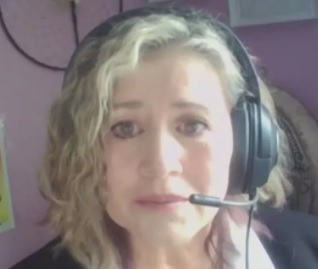
Mi’kmaw negotiator advocates for reduction in commercial catches to bolster treaty fishery
A top Mi’kmaw negotiator insisted commercial catches should be reduced anyway to ensure the treaty right is realized, while the president of a commercial fishermen’s association responded that enough has been done and the failure rests with Ottawa and First Nation leaders. “You heard from the chiefs, the buy-back program hasn’t been successful. So maybe at this point, Canada and DFO have to be more aggressive in taking back access  for the Mi’kmaw people and Indigenous people,” Janice Maloney told the committee. Colin Sproul, president of the Unified Fisheries Conservation Alliances, challenged the demand. Sproul represents 1,900 commercial fishermen. “It’s clearly unfair and un-Canadian to repossess access to the fishery from coastal communities without any consultation or compensation,” Sproul said. >click to read< 17:31
for the Mi’kmaw people and Indigenous people,” Janice Maloney told the committee. Colin Sproul, president of the Unified Fisheries Conservation Alliances, challenged the demand. Sproul represents 1,900 commercial fishermen. “It’s clearly unfair and un-Canadian to repossess access to the fishery from coastal communities without any consultation or compensation,” Sproul said. >click to read< 17:31
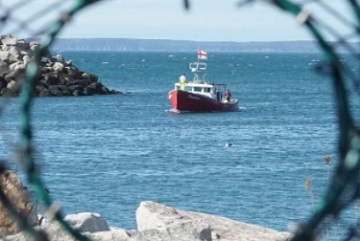
4 Mi’kmaw bands launch moderate livelihood fisheries with government approval
In a news release Wednesday, the Assembly of Nova Scotia Mi’kmaw Chiefs said the treaty fisheries will happen in the Acadia, Annapolis Valley, Bear River and Glooscap First Nations. The group said the Kespukwitk District Netukulimk Livelihood Fisheries Plan will start Thursday, though not all communities will launch then. The Mi’kmaw chiefs said they are following the path set out by the Potlotek First Nation to fish and co-operate with the Department of Fisheries and Oceans.,, The Unified Fisheries Conservation Alliance, which represents commercial fishers, said its members support the deal. “We believe this is an important step in the right direction,,,” >click to read< 19:31
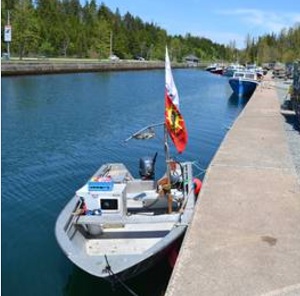
New agreement between Potlotek and DFO off to rocky start
Craig Doucette had a lukewarm reaction to his first weekend fishing under a new arrangement,,, The experienced lobster fisher from Potlotek First Nation said fisheries officers followed him closely on Saturday morning as he set his 20 traps for the day. “They’ve never come after me like that before. They’ve never followed my boat, they always wait till I leave,,, On Sunday morning, Doucette took in his catch and said none of his traps had been seized. Fisheries and Oceans Canada and the Assembly of Nova Scotia Mi’kmaw Chiefs each issued a statement on Friday saying the two sides had come to an understanding >click to read< 21:42

Mi’kmaq community angered at alleged government seizure of lobster traps
Federal fisheries officers seized 37 lobster traps that were set today by an Indigenous harvester. The Potlotek First Nation, located about 75 kilometres south of Sydney, N.S., issued a news release indicating the community had authorized the traps as part of its livelihood fishery.,, Earlier this year, federal Fisheries Minister Bernadette Jordan had said if bands haven’t negotiated agreements with Ottawa and received federal licences for moderate livelihood fisheries, then the government would enforce regulations. >click to read< 19:14

Nova Scotia’s Mi’kmaq chiefs want to see the science that restricts their fisheries.
Last week, Federal Fisheries Minister Bernadette Jordan, in a bid to end the conflict that has arisen since the Sipekne’katik First Nation began a moderate livelihood lobster fishery in September, announced that such fisheries would be required to operate within established commercial fishery seasons. That announcement, sandwiched between two meetings with the Assembly of Nova Scotia Mi’kmaw Chiefs, won praise from commercial fishers, who have contended that fishing outside their established seasons harms the fish stock. However, it drew scorn from Indigenous fishers,,, In a statement Friday, the assembly said that despite requesting specific data sets from the department during meetings over the past week, “including detailed scientific, economic and management data to justify the imposition of commercial seasons,” no such data has been provided. >click to read< 07:40
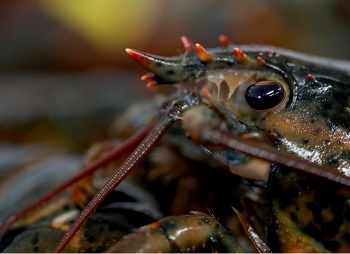
DFO: moderate livelihood fisheries must occur during commercial season
The Trudeau government will announce conditions for the authorization of moderate livelihood fisheries Thursday, including the expectation that those fisheries take place within existing commercial seasons. The Assembly of Nova Scotia Mi’kmaw Chiefs did not respond to a request for comment, but Mi’kmaw leaders and some academics have insisted the moderate livelihood fishery poses no risk to stocks because it is too small. The office of Fisheries and Oceans Minister Bernadette Jordan declined to comment in detail on DFO’s position until it is released Thursday, except to say the decision is based on conservation. >click to read< 07:10






